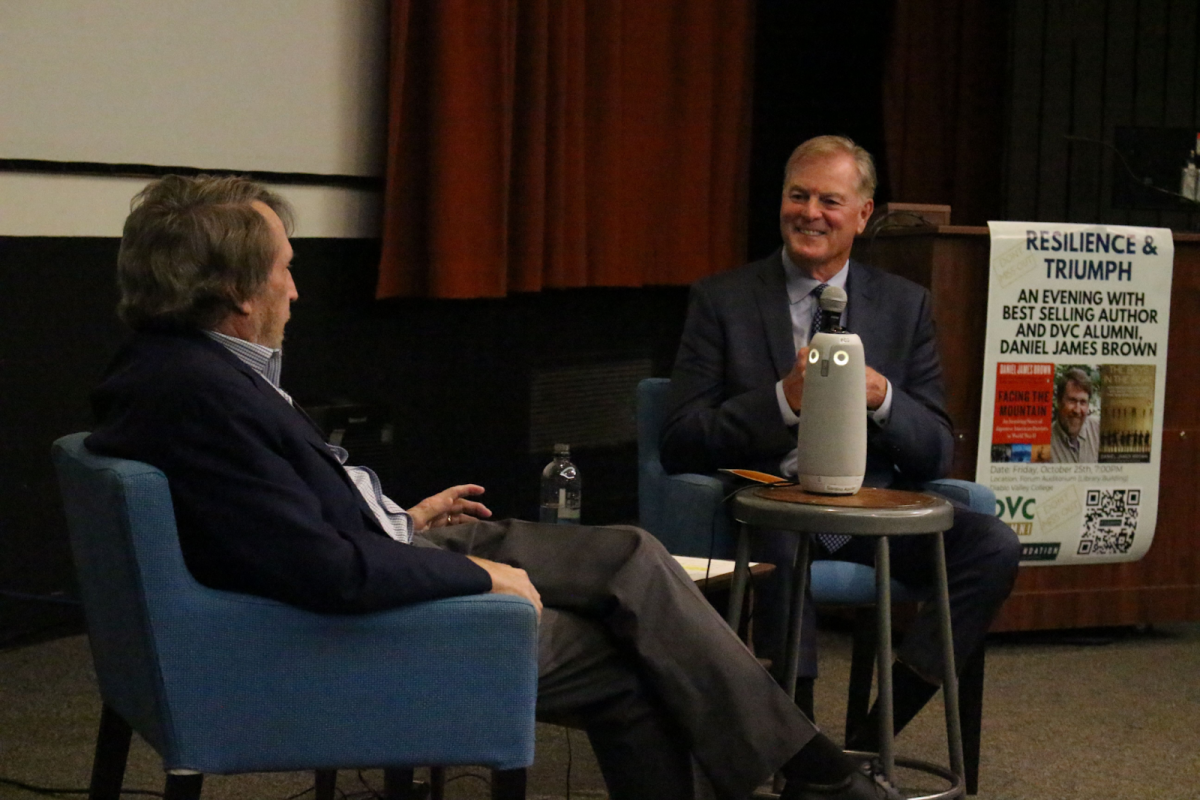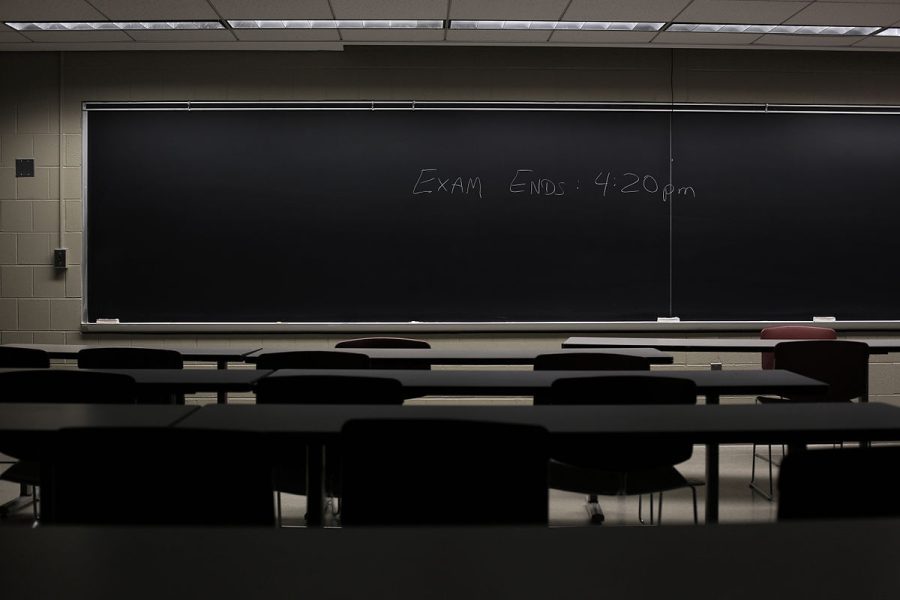“I Couldn’t Survive Like This”: A Former DVC English Adjunct Professor Who Resigned During the Pandemic Shares Her Struggle
Educators are often regarded as heroes for the work and dedication they put into helping students learn and achieve success. But the reality is that for many of these educators, remaining in their profession means engaging in a constant battle between their passion and love for teaching, and the ability to make a living.
This was the case for former DVC English adjunct professor Liz Mayorga.
Coming from a background with immigrant parents who had 6th and 8th grade educations, Mayorga knew all too well the sacrifices her family had made for her with the limited resources available to them.
As a community college student, she developed a personal connection with the institution, crediting her experience with a “life-changing transformation” she said she wouldn’t have gotten elsewhere. Thus, Mayorga intended to pay it forward by teaching at community colleges.
She began as an instructor at DVC in January 2019 while juggling jobs at other community colleges, and living in a situation she described as similar to vulnerable students who face difficulties finding housing and working multiple jobs at poverty level wages. “I started to learn of all the challenges that adjunct instructors have to go through,” she said.
During her second semester in 2019, while teaching only two courses, Mayorga realized that although she held a solid profession, the change in her lifestyle wasn’t different from the precarious conditions her parents had experienced. Her hope to teach more courses was stunted by the pandemic.
“In some ways, I was more vulnerable than when they worked 20 years ago,” she said, and it got to the point where she kept thinking, “How am I going to continue to do all of this without sacrificing myself?”
Mayorga said that unless an adjunct professor has inherited wealth or married someone with a higher income, the ability to make even a bare living is hard. In her case, she worked at different colleges, an experience that stretched her thin, and said it was hard “not being able to show up as your full self to any of your classes because you are just juggling so much at the same time.”
Administrative changes that had already been occurring before the pandemic, and were amplified in the school closures of 2020, conflicted with her personal values of wanting to focus on the most underprivileged students.
She increased her time investment in the shift to an online format, which she said quadrupled her workload. “I felt that instructors carried the weight of the mistakes that were made” by the administration, Mayorga said.
Passage of the 2018 bill, AB 705, was particularly difficult for Mayorga because students no longer had to test into transferable English classes, and instead could opt into them.
On the one hand, she explained, the change was great for students who tend to underestimate themselves because of a lack of confidence, but it was bad for students who didn’t have the skills to keep up.
“I had to bridge the gap for students who needed more confidence and students who needed more skills,” said Mayorga. This resulted in more time she invested emotionally, and it took a toll on her personal relationships.
Mayorga said that today the stakes are even higher for community college students compared to the era when she attended school. It has now reached the point for many people where failing is not an option – although failing, she said, is often an opportunity to learn.
“Pressure to increase transfer sometimes got in the way of serving the most vulnerable students,” said Mayorga.
She felt that half of her students needed more time to refine their skills, and that the pressure to pass them made her feel uncomfortable. As a result, Mayorga said she felt she wasn’t serving the entire community but rather the students who were transferring.
However, she also recalled some good things that came out of her experience during the pandemic, saying that she was impressed with the distance ed team for their creativity to think outside the box and help steer educators in the right direction, providing them with useful information that made them better teachers in the classroom.
Not only was teaching during COVID a lot more work, but problems with declining enrollment made Mayorga feel unsupported. “We put in more work, and got fewer benefits,” she said.
In a March interview with The Inquirer, John Freytag, president of the Academic Senate at DVC, explained that adjunct professors were most immediately and directly affected by declining enrollment rates both before and during the pandemic. “It’s not fiscally responsible to be running a class with only one, two or three students with 42 open seats,” he said.
Under the challenging circumstances, using available resources to serve as many students as possible became the priority at DVC – and unfortunately it also meant reducing the number of class sections offered.
“That impacts our adjunct or part-time faculty and the number of sections that are available for them to teach, and therefore their livelihoods and their salaries,” said Freytag. And in terms of their careers, he added, “that might be impacting their decisions.”
In the end, this proved to be true for Mayorga. She applied for a full-time position at DVC twice, but didn’t get the job. She remained heavily involved in the English department with several projects, but was assigned no classes for two semesters. She ultimately decided to resign in the fall of 2021.
“I feel like in some ways the decision was made for me,” said Mayorga. “I needed to find another way because I couldn’t survive like this.”
Mayorga now holds a new position as an instructional designer at a tech company, and maintains close ties to education by teaching others. She said the job provides her with better time management and is more aligned with her values, improving her mental health and personal relationships.
Through her experience, Mayorga said she has learned that holding an engaging and challenging job instead of giving herself entirely to others was the best decision. “All around I needed to take care of myself,” said Mayorga, “and that’s why I decided not to pursue classroom teaching anymore.”
Moving forward, Mayorga said she hopes to see a more progressive form of education in the future, where community colleges address critical problems affecting their students, such as poverty. She called for more resources and services to be made available to students to help them through their college experience.
“If we don’t address poverty, we won’t be able to serve our students as well as we should,” she said.
While educators are often called heroes, Mayorga thinks people shouldn’t refer to them that way. In fact, she said she believes that no one, no matter their profession, should be regarded as heroes – because ultimately that label can be harmful.
“No one should aspire to martyr themselves to help others,” she said, suggesting that, instead, people should be properly compensated for all the work they do.
“We should be taking care of people and not just applauding them for being kind,” she added. “I want us to acknowledge all the work beyond the tip of the iceberg so that we can give people what they have earned for their labor.”













































































Renato Escudero (REW) • May 22, 2022 at 6:57 pm
Thank you Maishia for writing this important article, and thank you, Inquirer, for publishing it!
Anthony Gonzales • May 20, 2022 at 10:36 am
Thank you, Maishia, for this thoughtful piece. Liz Mayorga was a valued member of our department, and I know our department, college, and students sorely miss her presence. Sadly, her story is common. Time to do the hard work of finding ways to support our adjunct faculty!
-Anthony Gonzales
English Professor